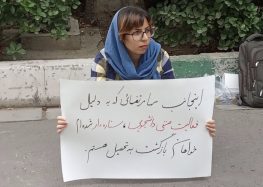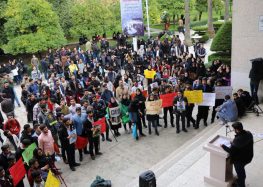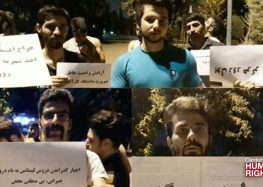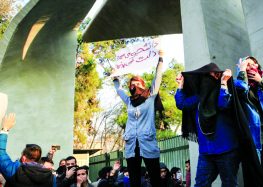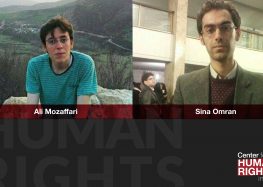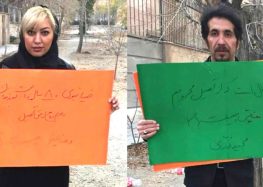Expelled Student Activist Reminds Rouhani of Unfulfilled Pledge to Let Her Resume Studies
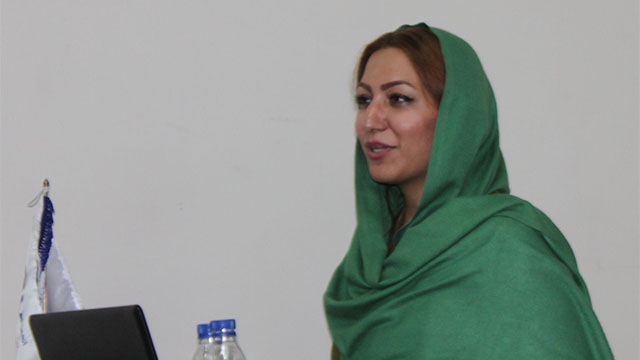
A women’s rights activist and former student who spent nearly two and a half years in prison for her peaceful activism has written an open letter to President Hassan Rouhani reminding him that he has still not fulfilled his campaign promise of allowing expelled political students to resume their studies.
“I, Mahdieh Golroo, was accepted at Allameh Tabataba’i University in the field of industrial economics in 2003,” she wrote on Facebook on December 5, 2016. “In 2007, there was a significant change in atmosphere inside the universities and I and many other students were expelled for two terms by the Disciplinary Committee and banned from entering the campus. This was at a time when I was completing my last term and was preparing for final exams to finish my degree. But since that time, the ban on me continuing my studies has been repeatedly extended, and as a result, I and many others have been denied the right to education.”
Students expelled from universities for political reasons are issued a “star” on their student record by the security establishment. During President Mahmoud Ahmadinejad’s two terms in office (2005-13) dozens of “starred students” were prevented from completing their studies—an injustice Rouhani promised to remedy while he was running for president in 2013.
“We have tried to ensure that those who were thrown out for flimsy reasons could go back to class,” he said on October 7, 2014.
Although some “starred students” have been able to resume their studies since Rouhani’s election, most have not. The Ministry of Science Research and Technology has been in flux with a number of Rouhani’s moderate ministerial appointees being rejected by Parliament while the ministry itself has been forced to operate under persistent pressure from conservatives politicians bent on stamping out political dissent on campuses.
Golroo, who volunteered for former presidential candidate Mehdi Karroubi’s 2009 campaign, was arrested on December 2, 2009 amid widespread protests against that year’s presidential election, which brought Ahmadinejad to power for a second term. She was charged with “propaganda against the state” and “assembly and collusion against national security” and sentenced to two years and four months in prison by the Revolutionary Court. Following her release from prison in June 2012, Rouhani’s positive campaign messages made her hopeful that she would soon be able to resume her studies.
“From the very first days you injected hope into us that our lost rights would be redeemed,” she wrote. “You emphasized a lot on improving the situation of academics and students during your presidential campaign. I remember you even once said that you would ‘resurrect the honor of universities and students.’ Another time you said ‘we have to get rid of the term ‘starred student.’’ As soon as your government of ‘wisdom and hope’ came to power, I was among the first people to submit a request to be reinstated. But I have lost hope along with the years of my youth.”
“Three years after your promises, I am still banned from entering the university,” she added. “There is still a star next to my name. I keep asking myself: Where’s the honor you promised to bring back to university students?”
Golroo continued: “Mr. Rouhani! You are a lawyer. You know that the Constitution has guaranteed education as a right of every citizen. It is not something you can deny with a court order. When we encourage prisoners to study and continue their education, how can we deny education to someone outside prison? Is this not an obvious contradiction?”
The “star” branding process was first revealed by a group of expelled students in 2006. One-star students could continue their studies if they pledged not to engage in political activities. Two-star students would be banned by the Intelligence Ministry from continuing their education unless they signed two pledges: Not to engage in political activities and accepting permanent expulsion if they did so. Three-star students would be immediately expelled.
“Every year with the start of school, I feel my deep, old wounds in all my body and count the years I’ve lost since 2003. My hopes were raised and dashed many times during your administration. I voted for you… and now I have a right to question your promises,” wrote Golroo.
Golroo was also arrested on October 23, 2014, a day after she attended a gathering in Tehran to protest acid attacks on several women in the city of Isfahan. She was held in solitary confinement in the Revolutionary Guards-controlled Ward 2-A at Evin Prison before being released on January 18, 2015.
Iran is party to several international treaties ensuring the rights of students to education, including the International Covenant on Civil and Political Rights (ICCPR) as well as the International Convention on Elimination of Racial Discrimination (CERD).

